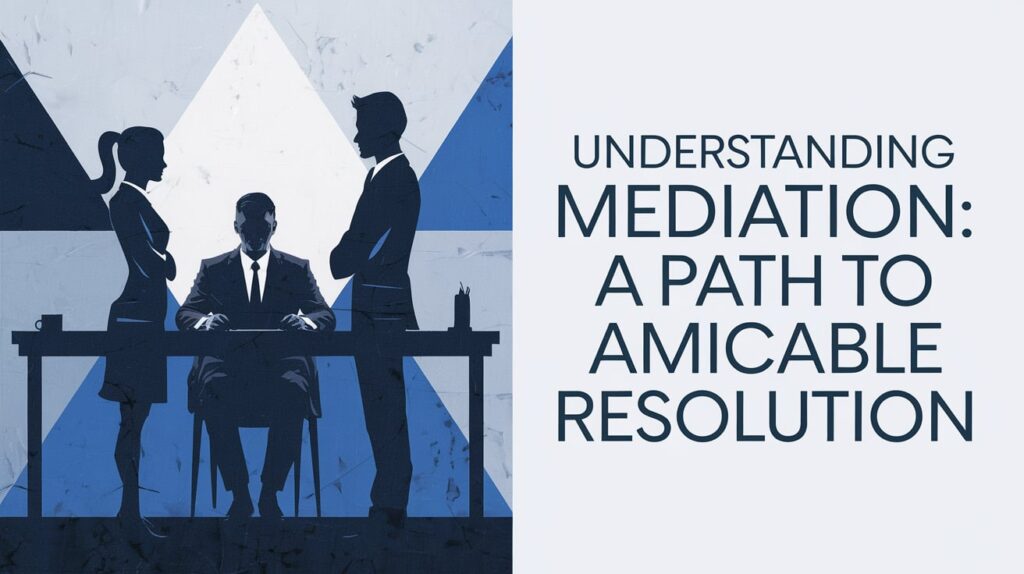Definition and Purpose
Divorce mediation is a voluntary process where you and your spouse work with a neutral third party, the mediator, to reach agreements on various aspects of your divorce. These may include property division, alimony, child custody, and support. The primary purpose of mediation is to facilitate open communication and negotiation, helping you to reach mutually acceptable solutions without the need for court intervention.

Role of the Mediator
The mediator’s role is to facilitate discussions, not to make decisions for you. They help:
Understanding that the mediator is not there to take sides or make judgments can help you approach the process with a more open mindset.
Essential Preparation Tips for Successful Mediation
1. Gather Documentation
Thorough preparation is key to a successful mediation. Gather all relevant documents, including:
Having this information readily available will help you make informed decisions and can speed up the mediation process.
2. Know Your Goals
Before entering mediation, take time to clearly define your goals and priorities. Consider:
Having a clear understanding of your objectives will help you stay focused during discussions and make decisions that align with your long-term interests.
3. Emotional Preparation
Divorce is emotionally challenging, and mediation can bring up strong feelings. To manage your emotions effectively:
Mediation is about finding solutions, not rehashing old conflicts.
4. Seek Legal Advice
While mediation is less formal than court proceedings, it’s still crucial to understand your legal rights and options. Consult with a family law attorney before mediation to:
Your attorney can provide valuable insights that will help you make informed decisions during mediation.
Effective Communication
During the mediation session:
Effective communication is key to reaching mutually beneficial agreements.
Flexibility and Compromise
Approach mediation with a willingness to compromise. While it’s important to advocate for your interests, being flexible can lead to creative solutions that benefit both parties. Be open to considering different options and perspectives.
Focus on the Future
Instead of rehashing past conflicts, focus on creating solutions for your future. This forward-thinking approach can help you move past emotional roadblocks and work towards practical resolutions.
Post-Mediation Steps
Finalizing the Agreement
If you reach agreements during mediation, the mediator will typically draft a memorandum of understanding or a mediation agreement. Review this document carefully with your attorney to ensure it accurately reflects the agreements made and addresses all necessary issues.
Legal Approval
Once you’re satisfied with the mediation agreement, it will need to be submitted to the court for approval. Your attorney can guide you through this process, ensuring all legal requirements are met for the agreement to be incorporated into your final divorce decree.
Setting the Stage for Successful Mediation
Preparing for your first mediation session is a crucial step towards achieving a fair and amicable resolution. By gathering necessary documentation, clarifying your goals, managing your emotions, and seeking appropriate legal advice, you set the stage for productive discussions and mutually beneficial outcomes.
Remember, while mediation offers a more collaborative approach to divorce, it’s still a complex legal process. The guidance of an experienced family law attorney can be invaluable in ensuring your rights and interests are protected throughout the mediation process and beyond.
At Cynthia H. Clark and Associates, we understand the intricacies of divorce mediation and are committed to supporting our clients through every step of the process. Our experienced team can provide the legal advice and representation you need to approach mediation with confidence and achieve the best possible outcome for your future.
Don’t navigate this challenging process alone. Contact Cynthia H. Clark and Associates today to schedule a consultation and learn how we can assist you in preparing for successful divorce mediation. Let us help you move forward towards a positive resolution and a new chapter in your life.
